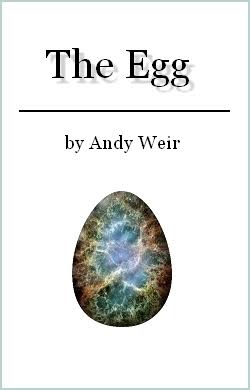

“Every time you victimized someone,” I said, “you were victimizing yourself. All act of kindness you’ve done, you’ve done to yourself. Every happy and sad moment ever experienced by any human was, or will be, experienced by you.”
What would happen to humanity if we suddenly became aware that we are all one? Would all the evil in the world disappear? Or would goodness simply fizzle out?
Although Andy Weir’s short story doesn’t answer this question directly, it compels you to think about the sheer interconnectedness of the human experience.
“The internal machinery of life, the chemistry of the parts, is something beautiful, and it turns out that all life is interconnected with all other life.”
—Richard P. Feynman
Andy Weir’s “The Egg”
The Egg is an engrossing short story that you can read in less than 20 minutes, yet its ideas may linger in your mind for days. What makes it even more enjoyable is its conversational narrative style, which keeps you engaged from start to finish.
At its core, the story unfolds as a back-and-forth conversation between a newly deceased man and a godlike figure. Gradually revealing the meaning of life and what happens after death.
The central theme is straightforward: the interconnectedness of all life. However, Weir takes this idea further—not just in the sense that people are connected in some abstract way, but in the sense that everyone is literally one.
Weir suggests that every person you’ve ever met, every experience you’ve had, and every emotion you’ve felt is not isolated but rather part of a vast, shared existence. In this universe, the idea of an individual self is an illusion. True enlightenment, according to the story, is experiencing every single life through a continuous cycle of reincarnation.
This perspective challenges our sense of morality. If every person is essentially you, then every act of kindness or cruelty is ultimately done to yourself.
The most enjoyable and effective element of The Egg
For me, it is its style—simple and conversational. Weir avoids dense philosophical jargon and instead presents deep ideas in a light, conversational way. The dialogue flows like a casual chat between two old friends–with humour. Allowing the weight of the concepts to settle in gradually, like sipping a warm cup of tea.
Even if you’re not usually drawn to philosophical reading, the conversational tone makes these profound ideas easy to absorb. Weir gently encourages you to question your assumptions about individuality and the nature of the soul without sounding preachy or overly complex.
Similarly, the use and change of perspective always help to immerse you into the scene. The first-person perspective is given to the godlike figure, and the second-person “you” is used for the newly deceased, but it could also be used for, well, you.
Another strength of The Egg is its brevity. It manages to unpack vast, thought-provoking ideas in just a few pages. It’s an easy read. Yet, it lingers in your mind long after you’ve finished, urging you to reflect on your place in the world.
The story forces readers to consider questions they might not typically ask. What does it truly mean to be a person? How do our actions impact not only those around us but humanity as a whole? I think that by declaring that all human experience is interconnected, the story tries to rouse empathy within us all. Subtly reminding us that harm done against a fellow human being is harm done to ourselves. All charitable acts end up touching our souls.
Final Thoughts
In conclusion, Andy Weir’s The Egg says a lot with very little words. Its conversational approach also keeps you entertained and unloads the information gently. If you’re looking for a short stimulating read that forces you to ponder how you look at the world, then The Egg is for you.
If you enjoyed reading this review, and want your friends to read it too, then like, comment and share. You can also check more of our book reviews here.



Leave a Reply